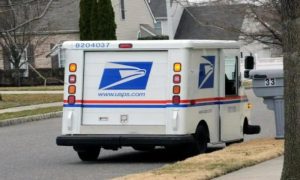- Andy Jassy took over as CEO from founder Jeff Bezos earlier this year.
- A slew of executive reshuffles and departures have followed this leadership switch.
- AWS, the main profit engine, is seeing the most turmoil. Other business units are in flux, too
Amazon is in the midst of the biggest leadership overhaul in its history. That’s put the future in flux and sowed seeds of doubt about the western world’s largest e-commerce and cloud-computing company.
Can the $1.6 trillion behemoth keep growing after a giant pandemic sales boost in 2020? The shares have stagnated in the past year, while the rest of the stock market roared ahead. There’s a new CEO, Andy Jassy, who recently took over from founder Jeff Bezos. Will Jassy run the tech giant as well as his former boss?
Here’s a rundown of the must-know news at Amazon, including the latest hires and exits, as well as deep dives on the AWS cloud business, new robot and drone projects, and the company’s controversial performance-improvement plans.
Who are the top leaders at Amazon?

With Jassy as CEO and Bezos becoming executive chairman this year, there’s been a scramble for leadership positions beneath them, as well as many departures.
Dave Clark became CEO of Amazon’s worldwide consumer business this year, taking over from Jeff Wilke, who left the company. Clark oversees everything from Amazon’s warehouse and shipping network to marketing and the Prime membership program.
Adam Selipsky took over from Jassy as CEO of Amazon Web Services, the company’s cloud-computing operation. Charlie Bell, a veteran cloud executive, has left, while James Hamilton, a distinguished engineer, was named to the powerful S-team.
Jeff Blackburn returned to the company in June to run Amazon’s media and entertainment division, which includes Prime Video, Amazon Studios, Twitch, podcasts, Audible and games.
AWS is seeing the most turmoil

Andy Jassy ran AWS since its inception in 2006. Now that he’s CEO of the whole company, Selipsky is in charge of the cloud operation. He’s an AWS veteran, too, but spent a few years as CEO of Tableau Software, which was acquired by Salesforce.
AWS is the largest cloud-computing provider, and it’s the profit engine of Amazon. Selipsky was upbeat in his first email to employees, writing “I am even more optimistic about our prospects to serve significantly more customers, and to serve them even more deeply – and as a result, for us to build a business that is much larger than it is today, and that is truly enduring.”
Still, AWS is being chased by Microsoft and Google, and there’s been a rash of departures recently that has sparked concern among insiders about a brain drain.
Amazon’s workplace conditions are under scrutiny
Amazon is the second-largest US employer and still one of the fastest-growing in the country. It offers income and benefits to well over 1 million people, and it’s been a source of jobs and shopping convenience during the pandemic. With that level of influence, Amazon’s operations have come under intense scrutiny, which has prompted a nationwide unionization effort.
The company’s fulfillment centers employ hundreds of thousands of people, offering pay and benefits that are sometimes competitive with similar jobs elsewhere. But the work can be grueling, and some staff don’t stick around long. This modern blue-collar workforce is the main target of Amazon’s system for improving, or ousting, employees deemed underperformers has been criticized by some workers who say it is unfairly stacked against them and can encourage managers to give bad reviews to good staff. The company has also been sued for alleged bias in the workplace.
The e-commerce operation is trying to maintain growth after a huge pandemic boost
Amazon’s main retail and marketplace businesses benefitted from surging demand during the pandemic last year. Now, growth has slowed.
The company recently issued third-quarter guidance, forecasting between $106 billion and $112 billion in sales, an increase of between 10% and 16% compared with the same period a year earlier. That’s a much lower growth rate than in previous quarters.
In the background, the marketplace business is evolving, with investors backing third-party Amazon sellers and novel approaches to logistics.
Amazon is still branching out into new areas
Founder Jeff Bezos likes to say it’s always “Day One” at Amazon, which means the company is constantly looking for new technology and businesses to embrace.
That’s produced fast-growing divisions, such as advertising and online pharmacy. Amazon is also spending heavily on video streaming and original content to chase Netflix. The e-commerce giant agreed to buy MGM for more than $8 billion this year.
There are also more experimental projects, such as delivery drones and robots.









































